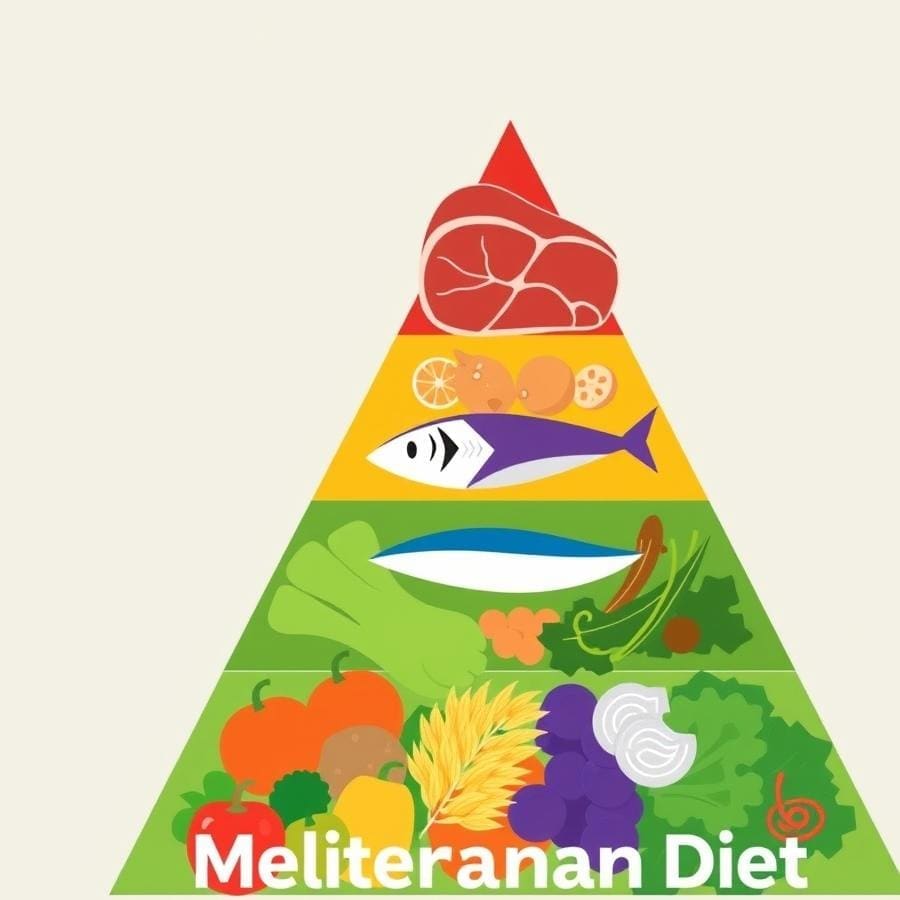Unlock a Healthier You: The Science-Backed Benefits of the Mediterranean Diet

Imagine a diet that doesn’t involve strict calorie counting or eliminating entire food groups. Instead, it focuses on enjoying delicious, whole foods like fresh fruits and vegetables, healthy fats, and lean proteins.
This is the essence of the Mediterranean diet, a way of eating that has been linked to longevity, reduced risk of chronic diseases, and improved overall well-being. In this article, we’ll explore the core principles of this acclaimed diet and delve into the scientific evidence that makes it a gold standard for healthy living.
What is the Mediterranean Diet?

The Mediterranean diet is an eating pattern based on the traditional cuisines of Greece, Italy, and other countries that border the Mediterranean Sea. As reviewed by the Harvard T.H. Chan School of Public Health, it’s characterized by a high intake of plant-based foods, including vegetables, fruits, whole grains, legumes, nuts, and seeds.
Olive oil is the primary source of added fat. The diet also includes moderate amounts of fish, poultry, dairy (mostly as cheese and yogurt), and a low intake of red meat.
Wine is often consumed in moderation with meals.
Benefit 1: Superior Heart Health

One of the most well-documented benefits of the Mediterranean diet is its positive impact on heart health. The emphasis on monounsaturated fats from olive oil, omega-3 fatty acids from fish, and fiber from whole grains and vegetables helps lower ‘bad’ LDL cholesterol, reduce blood pressure, and decrease inflammation.
Numerous studies, including the landmark PREDIMED trial, have shown that following a Mediterranean diet can significantly reduce the risk of heart attack, stroke, and death from cardiovascular disease.
Benefit 2: Brain Protection and Cognitive Function

The nutrients and antioxidants abundant in the Mediterranean diet also offer powerful protection for your brain. The healthy fats, vitamins, and polyphenols found in olive oil, nuts, and colorful produce help combat oxidative stress and inflammation, which are key factors in cognitive decline.
Research published in the Annals of Neurology suggests that adherence to this diet is associated with a lower risk of developing Alzheimer’s disease and can help maintain better memory and thinking skills as you age.
Benefit 3: Sustainable Weight Management

Unlike restrictive fad diets, the Mediterranean diet is a sustainable approach to weight management. Because it’s rich in fiber and healthy fats, it helps you feel full and satisfied, reducing the likelihood of overeating.
By focusing on whole, unprocessed foods, it naturally limits the intake of sugar and refined carbohydrates. This not only aids in maintaining a healthy weight but also improves blood sugar control and can significantly reduce the risk of developing type 2 diabetes.
Conclusion
Adopting the Mediterranean diet is a holistic investment in your long-term health. It’s a delicious, flexible, and evidence-based approach that nourishes your body from the inside out, protecting your heart, sharpening your mind, and helping you maintain a healthy weight.
By embracing its principles of fresh, whole foods and mindful eating, you can unlock a more vibrant and healthier life.

Thanks for sharing. I read many of your blog posts, cool, your blog is very good.
Thanks for sharing. I read many of your blog posts, cool, your blog is very good.